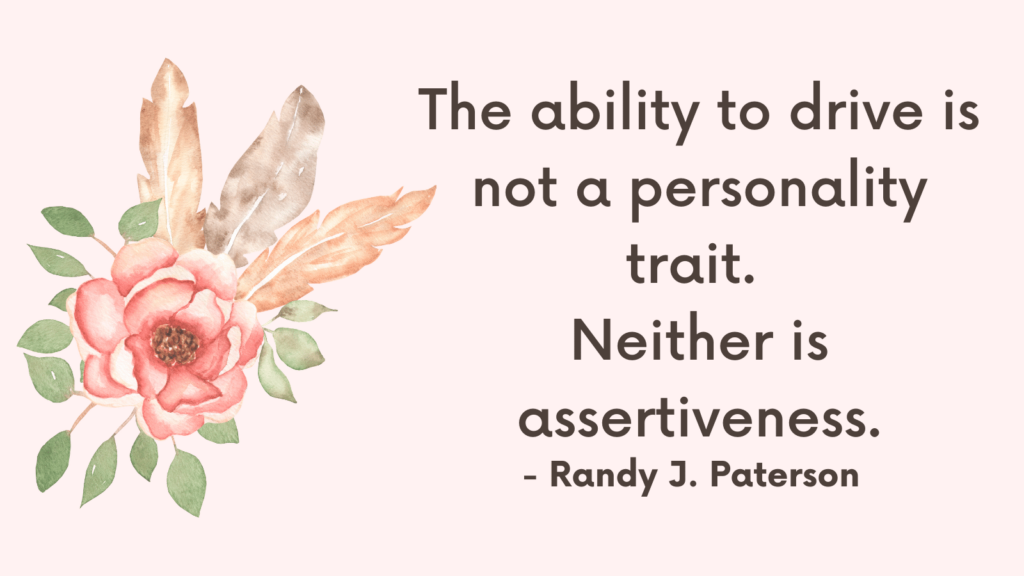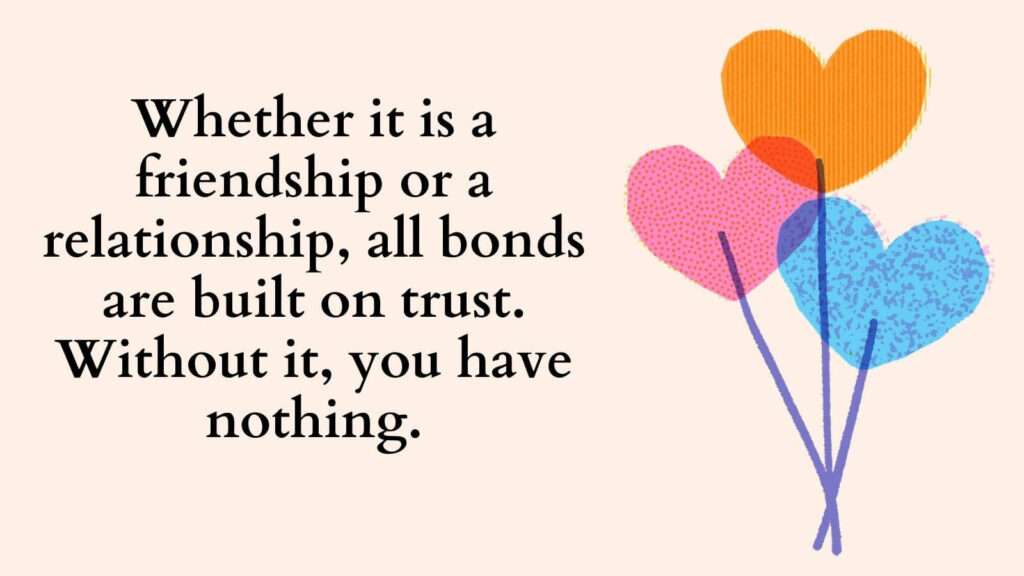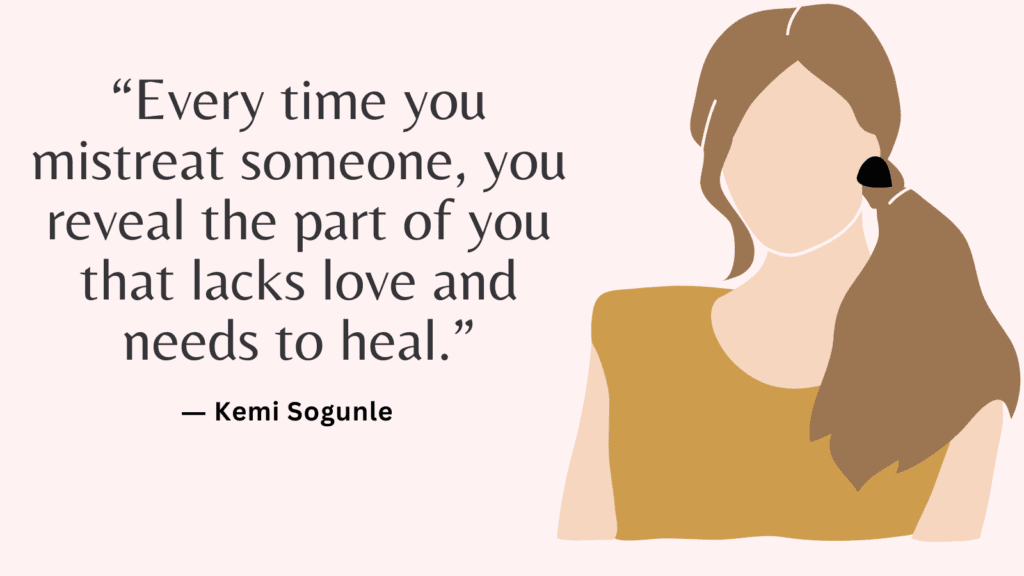In this post, you’re going to learn how to deal with someone who doesn’t respect your boundaries.
Examples of Boundaries Violation
Recognizing boundaries violations is crucial for maintaining personal well-being and fostering healthy boundaries. Here are a few examples:
1. Emotional Manipulation: This occurs when someone uses emotional tactics to control or influence another person’s thoughts, feelings, or behaviors. Examples include guilt-tripping, gaslighting, or emotional blackmail to obtain compliance or attention.
2. Invasion of Privacy: When an individual disregards another person’s need for privacy and autonomy, it constitutes a boundary violation. This can manifest as unauthorized access to personal belongings, surveillance, or intrusive questioning about private matters.
3. Physical Intrusion: Unauthorized physical contact, invasion of personal space, or unwanted gestures that disregard an individual’s physical boundaries constitute violations. This includes unwelcome touching, aggressive behavior, or physical proximity that induces discomfort.
4. Disregard for Consent: Any situation where consent is ignored or dismissed represents a significant boundary violation. This includes sexual coercion, pressuring someone into activities against their will, or disregarding explicit refusals of consent.
5. Verbal Abuse and Harassment: Verbal attacks, derogatory language, demeaning comments, or persistent harassment represent violations of emotional and psychological boundaries. This can lead to emotional distress and a detrimental impact on self-esteem.
6. Breach of Trust: Engaging in behaviors that betray trust, such as dishonesty, infidelity, or divulging confidential information without permission, constitutes a breach of relational boundaries.
7. Financial Exploitation: Manipulating or exploiting someone financially, pressuring them to give money or assets, or misusing shared resources without consent represents a serious boundary violation that undermines trust and mutual respect.
8. Ignoring Personal Limits: Continuously disregarding an individual’s expressed limits or boundaries, such as repeatedly crossing time constraints, imposing personal beliefs, or disregarding specific requests, represents a clear violation of established boundaries.
9. Unwanted Advice or Intrusive Help: Persistent, unsolicited advice, interventions, or assistance that disregards an individual’s autonomy and choices can be considered a boundary violation.
Related: Top 7 Tips On Setting Boundaries With An Ex When In A New Relationship
How To Deal With Someone Who Doesn’t Respect Your Boundaries?
1. Clearly Communicate Your Boundaries
Start by clearly expressing your boundaries to the individual in question.
Use “I” statements to convey your needs and limits, focusing on specific behaviors or actions that you find unacceptable.
For example, “I feel uncomfortable when you show up unannounced at my home. I need you to respect my space and call ahead before visiting.”
2. Assertively Reinforce Your Boundaries
If the person continues to disregard your boundaries, assertively reinforce them.
Clearly and calmly remind the individual of your previously communicated boundaries each time they are violated.
It’s important to maintain consistency in how you communicate and enforce your boundaries.
3. Set Consequences
Establish consequences for boundary violations and follow through if the behavior persists.
Consequences should be proportional to the situation and may involve limiting contact, seeking support from others, or taking other actions to protect your well-being.
For instance, “If you continue to disregard my boundaries, I will need to reconsider our frequency of interaction.”
Related: How To Set Boundaries With A Narcissist?
4. Seek Support
Reach out to friends, family, or a therapist for support and validation.
Discussing your experiences with trusted individuals can provide perspective, empathy, and guidance on how to address the situation effectively.
5. Evaluate the Relationship Dynamics
Assess the nature of your relationship with the individual and evaluate whether mutual respect and understanding exist.
Consider the overall impact of the person’s behavior on your well-being and whether the relationship is worth maintaining in its current form.
6. Practice Self-Care
Engage in self-care activities to manage any stress or emotional strain resulting from the boundary violations.
Prioritize activities that promote relaxation, self-compassion, and emotional balance.
Related: Top 25 Tips On How To Set Boundaries Without Being Controlling? (+FREE Worksheets PDF)
7. Establish Physical Distance
If possible, create physical distance from the individual to safeguard your boundaries.
This may involve reducing or limiting contact, setting clear communication boundaries, or creating space for personal reflection and healing.
8. Seek Mediation or Intervention
In some cases, involving a neutral third party, such as a mediator or counselor, may help facilitate a constructive conversation about boundaries and the impact of their violation on the relationship.
9. Reassess Trust and Vulnerability
Reevaluate the level of trust and vulnerability you have with the individual.
Consider whether they have demonstrated a willingness to understand and respect your perspective, as well as whether they have taken steps to modify their behavior.
10. Set Firm Boundaries
If the person continues to disregard your boundaries despite clear communication and reinforcement, it may be necessary to establish firmer boundaries or even consider limiting or ending the relationship.
Personal safety and well-being should always be prioritized.
11. Reflect on Patterns and Red Flags
Reflect on any recurring patterns or red flags in the individual’s behavior.
Understanding these patterns can inform your decision-making and help you recognize when it may be necessary to take more decisive action to protect your boundaries.
Related: Healthy Boundaries Quiz (+Free PDF Worksheets)
12. Practice Compassion
While addressing boundary violations, maintain a compassionate outlook.
Recognize that individuals who disregard boundaries may have their own challenges and triggers.
However, this should not excuse persistent disrespectful behavior.
13. Consider Professional Guidance
If the situation becomes overwhelming or significantly impacts your mental and emotional well-being, seek professional guidance from a therapist or counselor.
Professional support can provide tailored strategies and emotional validation.
14. Reinforce Self-Empowerment
Emphasize your right to set and maintain boundaries that promote your well-being and self-respect.
Acknowledge your agency in determining the conditions under which you engage in relationships and interactions.
15. Reflect on Personal Growth
Use the experience of managing boundary violations as an opportunity for personal growth and self-awareness.
Acknowledge the strength and resilience required to confront such challenges.
Related: Boundaries vs Ultimatum

Conclusion
Navigating situations where someone consistently disrespects your boundaries requires assertiveness, self-care, and a willingness to reassess relationships and personal well-being.
By implementing these strategies, individuals can assert their boundaries effectively and make informed decisions about the nature of their relationships.



